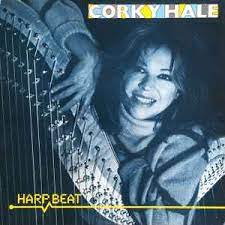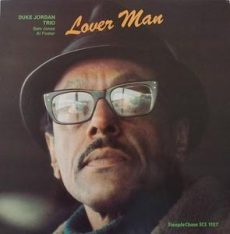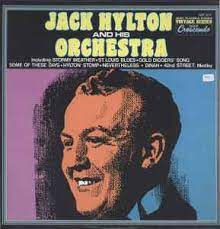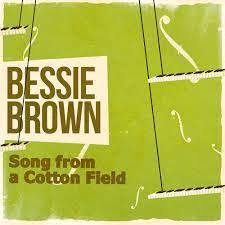
Daily Dose Of Jazz…
Corky Hale was born Merrilyn Hecht on July 3, 1936 in Freeport, Illinois. She learned piano, harp, flute, and cello by the time she was in her teens. She went on to study at the Chicago Music Conservatory and then at Interlochen Center for the Arts in Michigan.
By age 16 she had enrolled in Stephens College, a school for young ladies, for her last year of high school. After graduation she decided to move to Hollywood, California to be a musician but her father had other plans, sending her to nearby University of Wisconsin–Madison. After a year she dropped out, intent on moving to Hollywood but again a compromise with her parents led her to UCLA.
During the 1950s, she became a studio musician in Hollywood, playing harp on albums by Chet Baker, June Christy, Ella Fitzgerald, Anita O’Day, and Frank Sinatra. She worked as a vocalist with Freddy Martin at the Coconut Grove in Los Angeles, California. Jerry Gray invited her to perform with his band in Las Vegas, Nevada where she played piano for Billie Holiday and accompanied her on tour.
As a solo act, she recorded the album Corky Hale Plays George Gershwin and Vernon Duke with Buddy Collette, Howard Roberts, and Chico Hamilton. The late Sixties saw her accompany Tony Bennett on The Tonight Show Starring Johnny Carson and sang a song by herself.
She has worked with Liberace, Barbra Streisand, Elkie Brooks, Harry James, Peggy Lee, James Brown, Spike Jones, George Michael, Roberta Flack, Les McCann, Herbie Mann, Nina Simone and Björk, to name a few. Hale has also produced plays, including Give ‘Em Hell, Harry, starring Jason Alexander and Lullaby of Broadway, a profile of the lyricist Al Dubin. She has appeared at Vibrato, Catalina Bar & Grill, The White House, and the Kennedy Center.
At the University of Wisconsin, Hale was one of the few white students to join the NAACP. She was a birth control teacher at Planned Parenthood in New York and is on the National Advisory Board of NARAL and on the board of WRRAP. She is an American Film Institute associate and is the founder of Angel Harvest, an organization which redistributes unused food from restaurants, hotels, and events to hungry and needy people in Los Angeles.
Harpist, pianist, flutist, and vocalist Corky Hale, who recorded four albums as a leader and has been a theater producer, political activist, restaurateur, and is the owner of the Corky Hale Women’s Clothing Store in Los Angeles.
More Posts: bandleader,flute,harp,history,instrumental,jazz,music,piano,vocal

Requisites
Lover Man ~ Duke Jordan Trio | By Eddie Carter
The Duke Jordan Trio enters this morning’s spotlight with an album initially recorded in 1975 but not released until 1979. Lover Man (SteepleChase Records SCS 1127) is the companion to Duke’s Delight, an excellent quintet date, recorded at the same session and released a year later. I’ve been a fan of this extremely gifted pianist since first hearing Flight To Jordan (1960) and Two Loves (1975). Sam Jones on bass and Al Foster on drums are the rhythm section for this date, and Duke’s Delight. My copy is the original Danish Stereo release.
Side One takes off with Dig by Miles Davis. Duke opens with a concise introduction segueing into the threesome’s medium theme. The leader swings freely on the song’s only solo, propelled by Sam and Al’s support into the reprise and close. Up next is Dancer’s Call, the first of two Duke Jordan originals. The trio introduces the song easily and then delivers the melody. Jordan sets the mood in the opening solo with a lightly swinging interpretation; then Jones sculpts the following statement blissfully. Foster shares a conversation with piano and bass in the finale ahead of the trio’s closing chorus and finish.
Duke’s Love Train leaves the station heading down the track with a leisurely paced melody. Sam takes the opening solo unaccompanied, followed by Duke, who contributes a splendid statement. Al keeps the beat flowing in an exchange with the pianist into the ending theme. Lover Man by Jimmy Davis, Roger Ramirez, and Jimmy Sherman begins with a pretty introduction by Jordan, which develops into an elegant theme by the threesome. The pace picks up for the song’s only statement by the leader. He gives a gorgeous performance as crisp as the cool night air with a soft sensitivity preceding an affectionate climax.
They Say It’s Wonderful by Irving Berlin comes from the 1946 Broadway musical Annie Get Your Gun. Duke introduces this old evergreen, leading to the trio’s gentle melody. The pianist again has the song’s only reading and scores on a delicately pretty solo into a gorgeous theme reprise and soothing finale. Out Of Nowhere by Johnny Green and Edward Heyman begins with a concise introduction by Jordan that segues into a delightfully happy melody. The pianist is up first with a brisk opening statement; then Jones takes a short walk in the following solo. Foster concludes the proceedings with a scintillating conversation with Jordan before the close.
Nils Winther produced Lover Man, and Chuck Irwin recorded this album and Duke’s Delight. The sound quality is excellent, with a wonderful soundstage that transports the trio from the studio to your listening room with superb definition. The record is also noticeably quiet until the music starts. If you’re a piano trio fan and unfamiliar with this marvelous musician, I offer for your consideration Lover Man by The Duke Jordan Trio. It’s an excellent album and a fine showcase for Duke Jordan’s pianistic artistry with a superb rhythm section, resulting in an entertaining title I strongly recommend for a spot in your library!
~ Duke’s Delight (SteepleChase SCS 1046) – Source: Discogs.com ~ Lover Man, Out of Nowhere – Source: JazzStandards.com ~ They Say It’s Wonderful – Source: Wikipedia.org © 2023 by Edward Thomas Carter
Mr. Carter’s review is based upon the original album release. As you listen, know that Sea and Don’t Blame Me are bonus tracks available only on compact disc.
More Posts: choice,classic,collectible,collector,history,instrumental,jazz,music,piano

Daily Dose Of Jazz…
Jack Hylton was born John Greenhalgh Hilton on July 2, 1892 in Great Lever near Bolton, Lancashire, England the son of a cotton yarn twister and an amateur singer at the local Labour Club. He learned piano to accompany him on the stage and later sang to the customers when his father bought a pub in nearby Little Lever, becoming known as the Singing Mill-Boy. He also performed as a relief pianist for various bands.
Moving to London, England as a pianist in the 400 Club during his early career and playing with the Stroud Haxton Band. During World War I he became musical director of the band of the 20th Hussars, and later in the Army Entertainment Division. After the war Hylton formed a double act with Tommy Handley to little success, played with the Queens Dance Orchestra, wrote arrangements of popular songs and recorded them for His Master’s Voice and Zonophone under the label Directed by Jack Hylton. His records carried the new style of jazz-derived American dance music.
Dismissed by his own bandmates from the Queen’s Hall in 1922, Jack not only set up his own band, but also set up a number of other orchestras under the Jack Hylton Organisation. Even though he was not professionally trained for business, he brought his band to success during the Great Depression. He is credited for bringing Duke Ellington, Louis Armstrong and others to Britain and Europe in the 1930s.
Hylton also became a director and major shareholder of the new Decca record label, recorded with Paul Robeson, and made the first transatlantic entertainment broadcast with Paul Whiteman and his orchestra. He performed in the United States when Standard Oil signed him for a radio show on CBS. Returning to Britain he toured Europe, appeared on radio and television and finally disbanded by 1940.
He continued to conduct orchestras for radio in the years to come, leading the Glenn Miller Orchestra when it visited England in 1943. During the war, he took the London Philharmonic Orchestra around Britain, giving promenade concerts. At this point in his career he became an impresario, discovering new stars and managing radio, film and theatre productions.
The Fifties saw him reuniting with old band members for that year’s Royal Command Performance, billed as “The Band that Jack Built”. He founded Jack Hylton Television Productions, which lasted until 1960. IIn his final years Hylton was still producing stage shows, as well as taking a leading role in organising various Royal Command Performances, until his final stage production, Camelot, in 1965.
Complaining of chest and stomach pains he was admitted to the London Clinic, where three days later on January 29, 1965 1892~1965 | pianist, composer, bandleader and impresario Jack Hylton transitioned from a heart attack. He was 72.
More Posts: bandleader,history,impresario,instrumental,jazz,music,piano

Daily Dose Of Jazz…
Edward Anderson was born on July 1, 1910 in Jacksonville, Florida. He began playing trumpet at age ten, taking his first lessons with the bandmaster at Florida State College. At 15 he went to St. Emma College in Belmead, Virginia\ and was principal trumpet in the college band.
He played with Luckey Roberts at the Everglades Club in Palm Beach, Florida and traveled to New York City with him in the spring of 1926. Roberts introduced Anderson to Clarence Williams, who began using him on recordings. He recorded with blues and jazz singer Bessie Brown on her album Song From A Cotton Field in that year. During the period between 1927-28, Anderson worked with drummer George Howe and Luis Russell at the Nest Club, and with Jelly Roll Morton at the Rose Danceland.
1929 saw Ed subbing for Louis Armstrong at Connie’s Inn while Armstrong was in the revue Hot Chocolates. He played with Benny Carter at the Arcadia Ballroom, Charlie Johnson, and Bingie Madison, then joined The Mills Blue Rhythm Band from 1930 until mid 1934. He later played in Charlie Turner’s Arcadians, then joined Hazel Scott’s big band early in 1939.
After a stint with Frankie Newton’s band at the Mime Club in New York in 1941 he left fulltime music. Eventually Ed Anderson, who often went by Andy, gave up the trumpet, but maintained a residence in the city. The date of his death is unknown at this time.
More Posts: history,instrumental,jazz,music,trumpet



